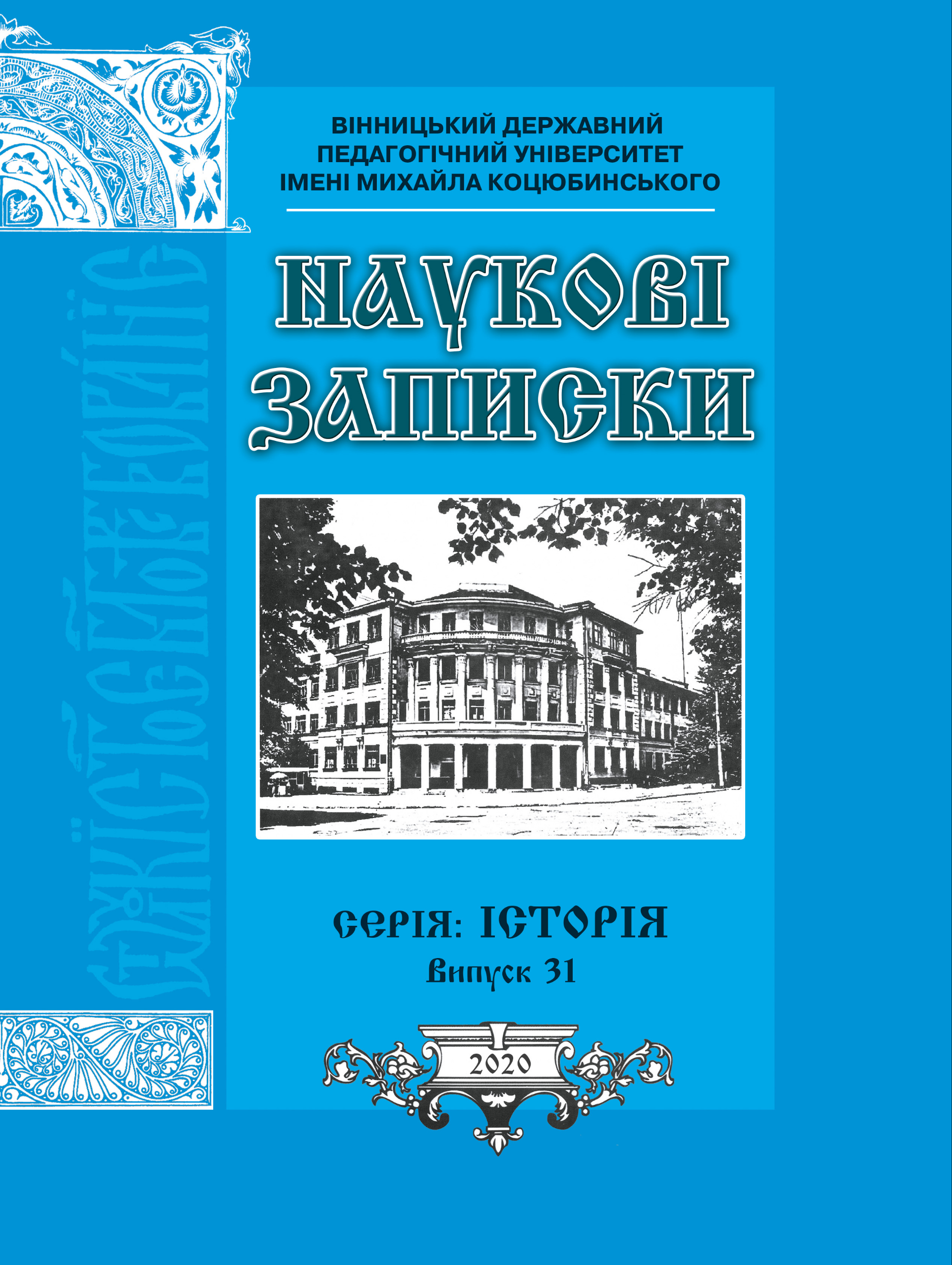Abstract
The purpose of the article is to conduct an analysis of the social value of the operation of the governorate supreme courts’ civil departments – appeal and auditorial establishments of the Right-Bank Ukraine. In order to attract allegiance of the Polish nobility and to get asserted in the historic region, there was a flexible policy developed by the supreme power, which was primarily aimed at preserving civil relationship system typical for the Polish and Lithuanian Commonwealth. The author discovers the margins of the elite’s and the judicial power’s compromises resulting in the local population adjusting to the Russian rule. The methodology of the research is based on a combination of general scientific (analysis, synthesis, generalization) and special-historical (historical- genetic, historical-typological, historical-systematic) methods with the principles of historicism, systematicity and scientificity, making it possible to concentrate on the mechanisms of adapting the judicial tradition of the Polish and Lithuanian Commonwealth to the requirements of the supreme power. The scientific novelty is attained by means of researching the imperial expertise in search for consent with the Polish noblemen involving the mechanisms of preserving the judicial tradition of the Polish and Lithuanian Commonwealth. The civil departments were required to minimize the social tension by means of settling the civil law relationship. The article provides examples of flexibility in the policy held by the supreme power and judicial establishments, temporarily calming the elite in losing independence. Conclusions. Domestic policy of the supreme power was aimed at settling down the relationship with the local elite by means of re-establishing the elements of the judicial power of the Polish and Lithuanian Commonwealth and preserving agrarian relationship. However, it was an undeniable imperial policy of reaching adherence of the Polish nobility. There were appeal and auditorial governorate supreme courts established to control the judicial structures, the civil departments being responsible for correcting the operation of the lower courts and decreasing tension in the region. The adherence of the Polish nobility was achieved due to farsightedness and flexibility of the imperial policy, being able to pretend it was ignorant of certain violations in the civil law sphere. The attempts to implement the Russian legislation transforming the current system, generated violations primarily in the financial matters. The supreme power observed status quo in the relationship between the landowners and the serfs.
References
Shevchuk, A. (2019). Supreme Courts of the Right-Bank Ukraine (1797–1831): Traditions Of The Polish And Lithuanian Commonwealth and Imperial Expertise. INTERMARUM: history, policy, culture, 6, Pp. 7–30. https://doi.org/10.35433/history.11191
Бовуа, Д. (2007). Російська влада і польська шляхта в Україні. 1793–1830 рр. Львів: Кальварія, 296 с.
Горизонтов, Л. (1999). Парадоксы имперской политики: Поляки в России и русские в Польше (ХІХ – начало ХХ в.). Москва: Издательство «Индрик», 272 с.
Гурбик, А. (2009). Люблінський трибунал. Ред. В. А. Смолій, Енциклопедія історії України (в 10 т. Т. 6, с. 382). Київ: Наукова думка
ДАЖО – Державний архів Житомирської області
ДАХмО – Державний архів Хмельницької області
Долбилов, М. (2010). Русский край, чужая вера: Этноконфессиональная политика империи в Литве и Белоруссии при Александре II. Москва: Новое литературное обозрение, 1000 с.
Каппелер, А. (2005). Росія як поліетнічна імперія: виникнення, історія, розпад. Львів: Вид-во Католицького Українського університету, 360 с.
Карнишина, Н. (2012). Западные губернии Российской империи: проблемы государственно- правового устройства. Известия высших учебных заведений. Поволжский регион. Гуманитарные науки, 1, С. 14–19
Клочков, М. (1916). Очерки правительственной деятельности времени Павла I. Петроград: Сенатская типография, 631 с.
Новицкий, И. (1871). Справочный словарь юридических терминов древнего актового языка Юго-Западной России. Киев: В университетской типографии, 31 c.
Писарькова, Л. (2007). Государственное управление России с конца XVII до конца XVIII века. Эволюция бюрократической системы. Москва: РОССПЭН, 743 с. https://doi.org/10.1353/imp.2007.0015
ПСЗРИ-1 – Полное собрание законов Российской империи. Собрание первое. С 1649 по 12 декабря 1825 г.: в 45 т. СПб.: Тип. Второго отделения Собственной е. и. в. канцелярии, 1830.
ПСЗРИ-2 – Полное собрание законов Российской империи. Собрание второе. С 12 декабря 1825 г. по 28 февраля 1881 г.: в 55 т. СПб.: Тип. Второго отделения Собственной е. и. в. канцелярии, 1830 – 1884
Склокін, В. (2019). Російська імперія і Слобідська Україна у другій половині XVIII ст.: просвічений абсолютизм, імперська інтеграція, локальне суспільство. Львів: Видавництво УКУ, 268 с.
Уортман, Р. (2004). Властители и судии: развитие правового сознания в императорской России. Москва: Новое лит. обозрение, 515 с.
ЦДІАК – Центральний державний історичний архів України, м. Київ
Шевчук, А. (2019). Соціальне значення діяльності кримінальних департаментів головних судів Правобережної України (1797 – 1831 рр.). Наукові записки Вінницького державного педагогічного університету імені Михайла Коцюбинського. Серія: Історія, 27, С. 9–19 https://doi.org/10.31652/2411-2143-2019-30-9-19

This work is licensed under a Creative Commons Attribution 4.0 International License.
Copyright (c) 2020 Andrii Shevchuk





